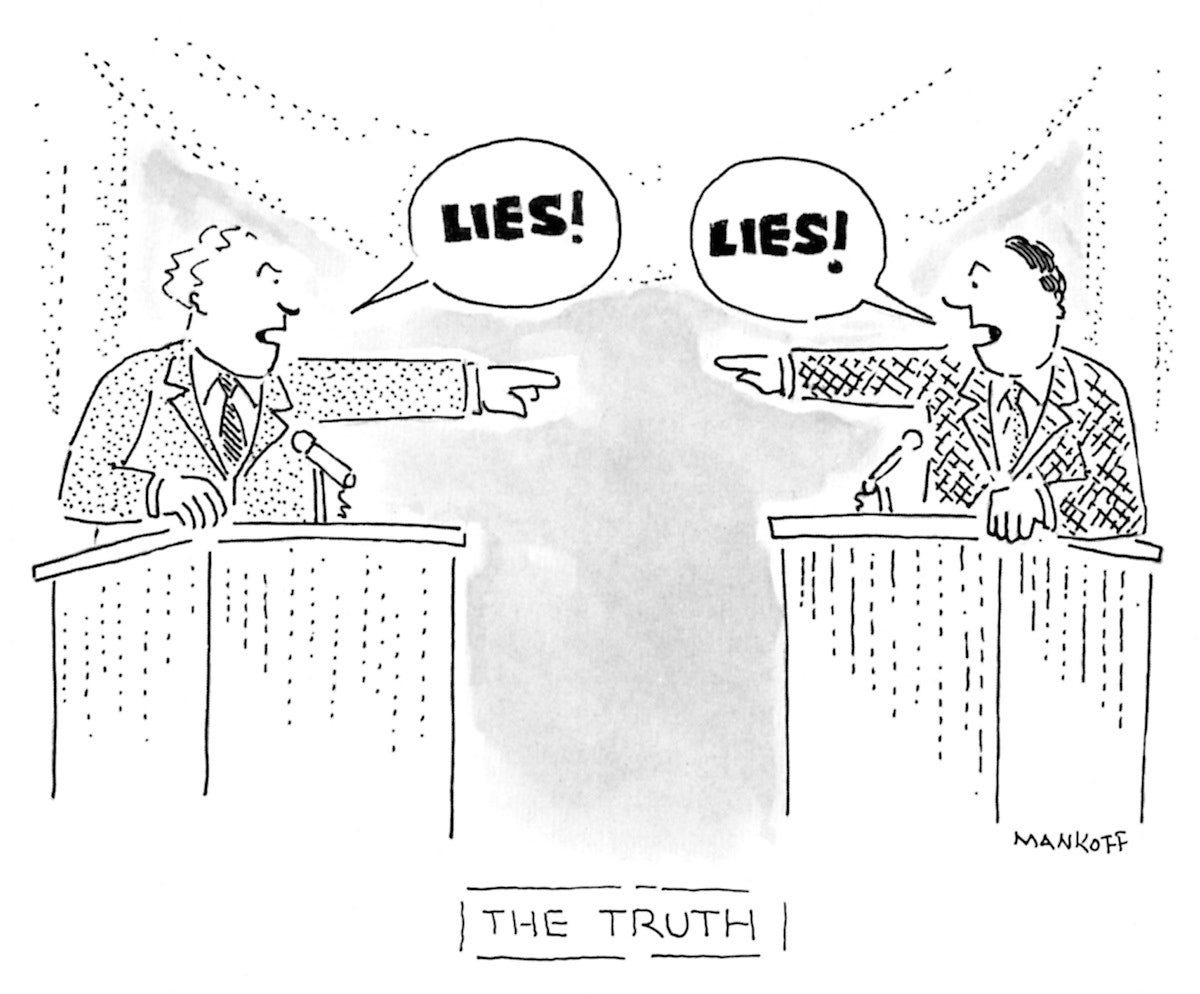Debate Training: Deserve to Win
The annual Cato-Heritage intern debate on Libertarianism versus Conservatism is scheduled for July 23, 2015. Today I visited Cato to provide debate training, so yesterday I had to figure out what I actually know about debating.
My first thought: Winning isn’t everything. Many sleazy debating tactics are effective, especially with broader audiences.
appeals to emotion
changing the subject
ad hominem attacks
making persuasive arguments you know to be false or overstated
That, of course, is why televised political debates are godawful.
My real goal, then, isn’t to teach debaters how to win, but how to deserve to win. There’s a correlation between winning and deserving to win, but it’s far from perfect. In the end, I distilled seven big principles from my experience. The first three focus on substance, the latter four on style/strategy.
Substance
1. Become broadly knowledgeable about the subject under debate.
2. Speak literal truth.
3. Defend your actual views with your actual arguments.
Style/Strategy
4. Know your time limit.
5. Know who you’re really addressing: undecided audience members.
6. Talk to your opponent like he’s your best friend.
7. [If there’s before-and-after voting]
Make sure the audience clearly grasps the issue before the first vote.
Detailed presentation here.
P.S. I briefly considered waiting to publish this until after the debate, but I’m more interested in raising the level of the debate than giving Cato an edge. If both sides spend the next two weeks reading the other sides’ favorite authors, then bend over backwards to be friendly on July 23, I’ll be deeply pleased.
The post appeared first on Econlib.



I think you're right that most debates are targeted toward and audience or a judge, but when you *are* debating with the intent of convincing your interlocutor, what I've found most helpful is to put about twice as much work into mapping/understanding my opponent's beliefs as making my case.
Most of my questions in the first half or so are from a place of genuine curiosity, where I don't know what they will say, and I shift to more pointed/crowbar questions once I better understand *this* opponent.
I've written a little about running debates in this mode here at Plough: https://www.plough.com/en/topics/life/relationships/students-brave-the-heat
These are excellent suggestions for people who are already going to engage in debate. What I wonder, though, is if it is somehow possible to mitigate the social harm caused by high school and undergraduate debate clubs. No matter where they go in life, their alumni struggle ever afterward with incorrigible obnoxiousness. This may be a survivorship bias problem, though, and perhaps cannot be fixed by improving debate.